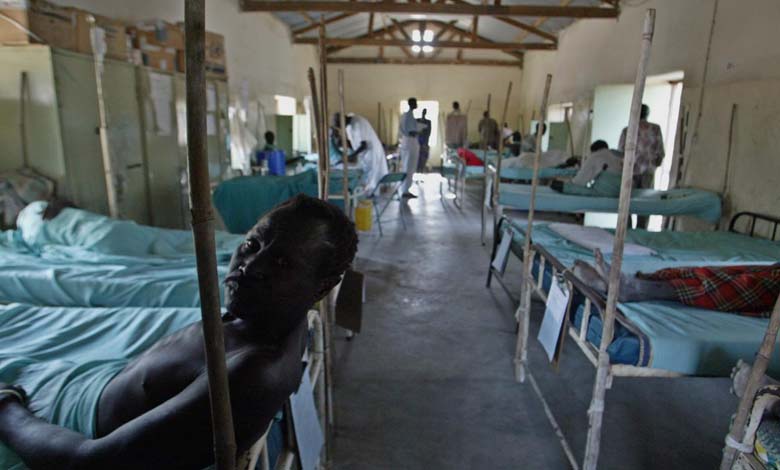Sudan Has Lost 70% of Its Hospitals: The Health Sector is Collapsing Under the Weight of War

Sudan is experiencing a rapid collapse of its healthcare system due to the ongoing war, with hospitals unable to provide essential services to patients and the injured. The country is facing a severe health crisis, marked by deteriorating health infrastructure and increasing numbers of casualties among women and children. This report examines the current state of the healthcare sector in Sudan, the impact of the war on medical services, and the measures being taken to try to save what can be saved.
Deterioration of the Healthcare System
Christos Christou, President of Médecins Sans Frontières, revealed that the healthcare system in Sudan is suffering from severe deterioration, with more than 70% of medical facilities unable to operate due to destruction and looting.
Christou explained from Port Sudan that one-third of the war casualties are women and children under ten years old, which exacerbates the humanitarian tragedy the country is enduring.
Rising Malnutrition Rates: A New Threat
A Médecins Sans Frontières team conducted surveys revealing a concerning increase in diseases related to malnutrition, especially among pregnant women who are losing their children due to nutritional deficiencies.
Christou clarified that the organization is working in eight Sudanese states, including the capital Khartoum, which has seen millions of people displaced due to the war.
The organization is working to restart some of the heavily impacted health facilities, noting that more than 70% of these facilities are no longer operational due to destruction, looting, or lack of supplies and medical staff.
Obstacle to Relief Efforts
Christou emphasized the need to communicate with medical facilities and the Ministry of Health services, pointing out the importance of collaborating with the warring parties to ensure the safety of staff and to guarantee that medical services reach those in need. This task requires considerable effort and complex coordination amid security instability and worsening humanitarian conditions.
-
Sudan: The Muslim Brotherhood Inflames the Situation in Khartoum
-
Battle for the Blue Nile Region to Determine the Course of the Sudanese War
Christou mentioned the funding crisis faced by UN organizations and NGOs, which hampers their ability to provide necessary assistance. He explained that Médecins Sans Frontières plans to increase its activities in Sudan to bridge the gaps caused by the funding shortfall, in an attempt to alleviate the severity of the health crisis affecting the country.
A Major Challenge
Political analyst Mohamed Abou Zeid stated that the health situation in Sudan represents a major challenge that requires an urgent and comprehensive response from the international community.
Abou Zeid added that ensuring the provision of basic health services to citizens, especially the most vulnerable groups such as women and children, is a top priority in this critical phase.
-
Have al-Burhan’s supporters lost faith in the Sudanese Army?
-
The Muslim Brotherhood in Sudan Seeks to Return to the Scene Through International Conferences… Details
The Sudanese political analyst continued that the deterioration of the healthcare sector in Sudan is a clear reflection of the political and economic crisis plaguing the country, adding that the ongoing civil war has not only affected health infrastructure but has also led to the displacement of medical personnel and hindered international relief efforts, making the situation more complex.
Abou Zeid pointed out that the warring parties bear a significant portion of the responsibility, as armed conflict leads to the destruction of health facilities and looting of medical equipment, further increasing the suffering of the Sudanese people. He added that the solution
requires effective international cooperation and pressure on the warring parties to cease hostilities and allow safe humanitarian access, as well as support for NGOs attempting to assist the healthcare sector in Sudan.












